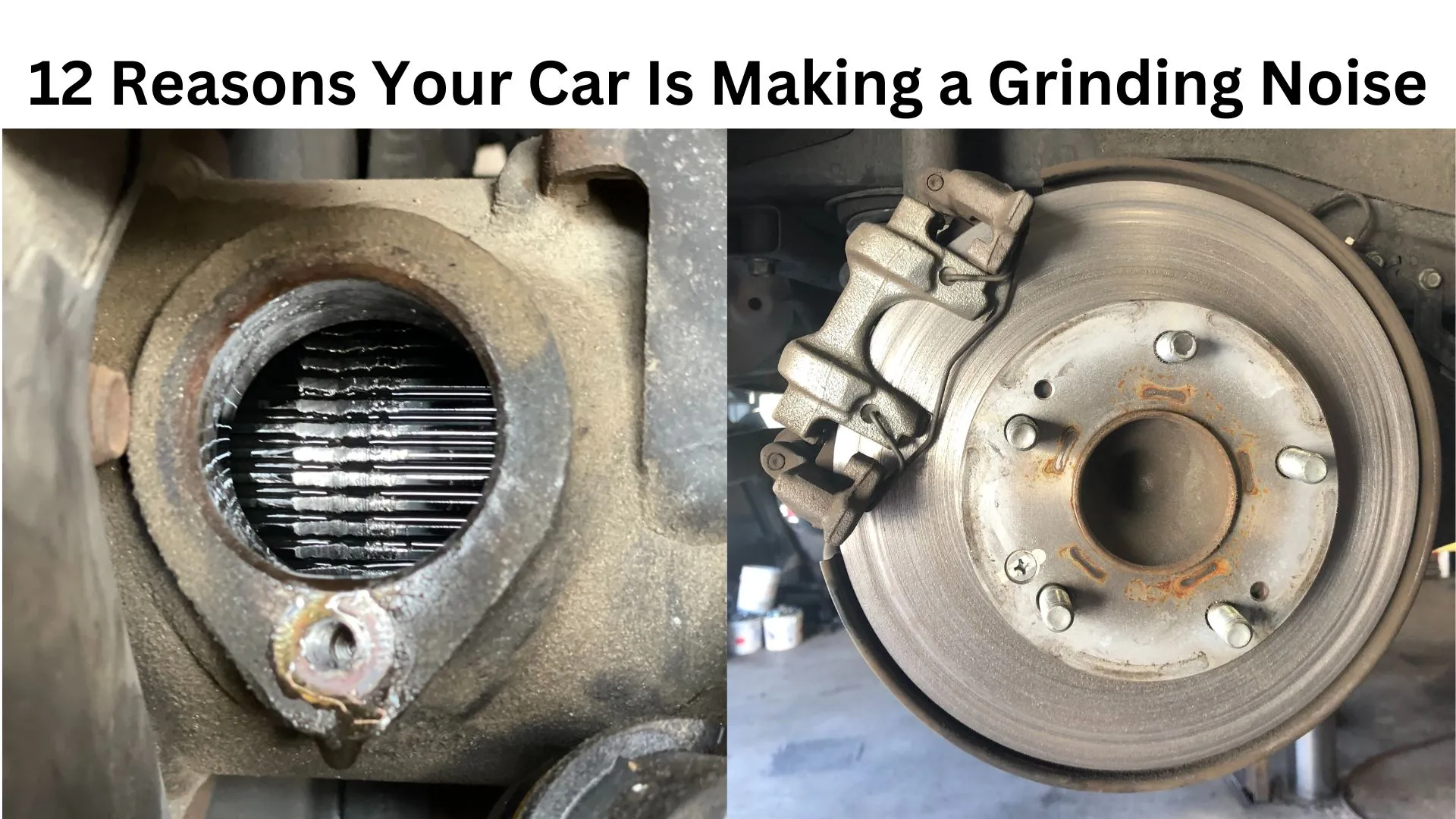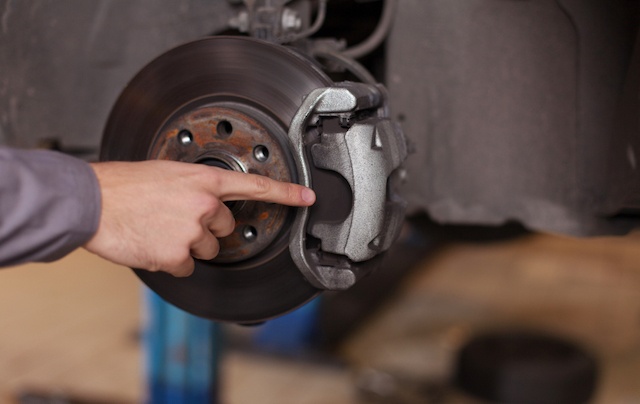Hearing a loud humming noise when braking can be alarming. This sound might signal an issue with your vehicle.
Braking is one of the most crucial functions of your car. When you notice unusual noises, it’s essential to address them promptly. A loud humming noise during braking could stem from various causes. It might be something minor, but it could also indicate a significant problem.
Ignoring these sounds can lead to more severe damage and costly repairs. Understanding the potential reasons for this noise helps in taking the right steps. We will explore the common causes of a loud humming noise when braking, helping you identify and address the issue effectively. Stay informed and keep your vehicle safe.
Common Causes Of Loud Humming Noise
Worn brake pads are a frequent cause. They create a loud humming noise. Brake pads get thin over time. They then touch the rotor and make noise. Regular check-ups can prevent this issue. Replacing brake pads is a simple fix.
Wheel bearings support the wheel hub. Damage can cause a loud humming sound. This noise gets louder when you turn. Bearings wear out due to age or poor roads. Replacing them stops the noise. Regular maintenance helps keep wheel bearings in good shape.
Identifying Worn Brake Pads
Worn brake pads can cause a loud humming noise. This noise happens when the pads are too thin. Reduced braking power is another sign. The car may take longer to stop. Also, check for a vibration when you press the brake pedal. If the steering wheel shakes, the pads might be worn. Lastly, look for a squealing sound. This can mean the pads need to be replaced.
First, park the car on a flat surface. Use a jack to lift the car. Next, remove the wheels. Look at the brake pads through the caliper. Measure the thickness of the pads. If they are less than 1/4 inch, they need replacing. Also, check for cracks or uneven wear. Finally, inspect the rotors for grooves or rust. Replace any damaged parts.
Inspecting Wheel Bearings
Wheel bearings can cause humming noises when braking. Damaged bearings may lead to vibrations. You might feel rough movement while driving. Listen for clicking or grinding sounds. These sounds suggest wear and tear. Unusual noises can mean serious damage. Check for excessive play in the wheel. This can be another sign of bearing problems.
Lift the car using a jack. Spin the wheel by hand. Listen for any noise. Move the wheel side to side. Feel for looseness. Check for resistance while spinning. Look for any leaks or cracks. Inspect the bearing seals. Ensure they are intact. Use a stethoscope to listen closely. This can help identify the issue.

Credit: comtiresco.com
Role Of Brake Rotors
Brake rotors can wear down over time. This can cause a loud humming noise. Worn rotors may have grooves or rough spots. These imperfections cause vibrations. Damaged rotors can crack or warp. This makes braking less smooth. Regular checks can catch wear early. Replacing rotors when damaged is important. This keeps your brakes working well. It also ensures your safety on the road.
Warped rotors can cause trouble. You might feel a pulsing sensation when braking. The steering wheel may shake. Loud noises can also occur. This happens because the rotor is uneven. Warped rotors need fixing soon. Ignoring them can lead to more damage. It can also cause safety risks. Regular maintenance helps prevent warping. If you notice these signs, check your rotors.
Impact Of Brake Calipers
Brake calipers play a key role in stopping your car. They hold the brake pads. They press them against the brake rotor. This creates friction. This friction slows the car down. Without working calipers, braking is hard.
Calipers can wear out. This leads to problems. A loud humming noise when braking is common. Worn calipers might not press the brake pads well. This causes uneven wear. It makes noises. Also, dirt can get into the calipers. This affects their function. Regular checks can help. Replace bad calipers early. This keeps your brakes working well.
Checking Brake Fluid Levels
Brake fluid is important for safe braking. It helps the brake system work. Without enough brake fluid, brakes can fail. This can lead to accidents. Always check brake fluid levels. Make sure they are not low.
Low brake fluid can cause many issues. Here are some symptoms:
- Soft or spongy brake pedal
- Brake warning light on
- Longer stopping distances
- Noises when braking
- Leaks under the car
Solutions For Humming Noise
Old brake pads can cause a loud humming noise. New brake pads can solve this issue. Use high-quality brake pads for better results. Check the brake pads regularly. Change them if they are worn out.
Worn-out wheel bearings can also make a humming noise. Check the wheel bearings if you hear a hum. Replace any damaged bearings. This can stop the noise. Good wheel bearings are important for safe driving.

Credit: www.autotechiq.com
Preventive Maintenance Tips
Regular inspections are key. Check your brakes often. Look for wear and tear. Find problems early. Fix them fast. This keeps you safe. This also saves money. Use trusted mechanics. They know what to do. They find issues quickly. They fix them right. They help your car last longer. They keep it running well.
Care for your brake system. Clean it often. Change brake fluid. Use the right type. Check brake pads. Replace when thin. Inspect brake rotors. They should be smooth. Fix any cracks. Check brake lines. Look for leaks. Fix them at once. A well-kept brake system is vital. It keeps you safe on the road.

Credit: gmb.net
Frequently Asked Questions
Why Does My Car Hum When I Hit The Brakes?
Your car may hum when braking due to worn brake pads, warped rotors, or issues with the braking system. Check brakes regularly.
Why Does My Car Moan When I Brake?
Your car may moan when braking due to worn brake pads, rotors, or low brake fluid. Get it inspected soon.
Can Bad Rotors Make Humming Noise?
Yes, bad rotors can make a humming noise. This noise often indicates uneven wear or damage. Replace or resurface rotors to fix the issue.
Why Does My Car Make Noise When Braking But Brakes Are Fine?
Your car may make noise when braking due to worn brake pads, debris, or lack of lubrication. Check for any issues.
Conclusion
Fixing the loud humming noise when braking is crucial for safety. Address issues promptly to avoid bigger problems later. Regular maintenance helps keep your brakes in top shape. Consult a mechanic if the noise persists. Safe driving needs proper brake function.
Pay attention to unusual sounds from your car. Stay alert, stay safe. Your car’s health depends on your actions.
